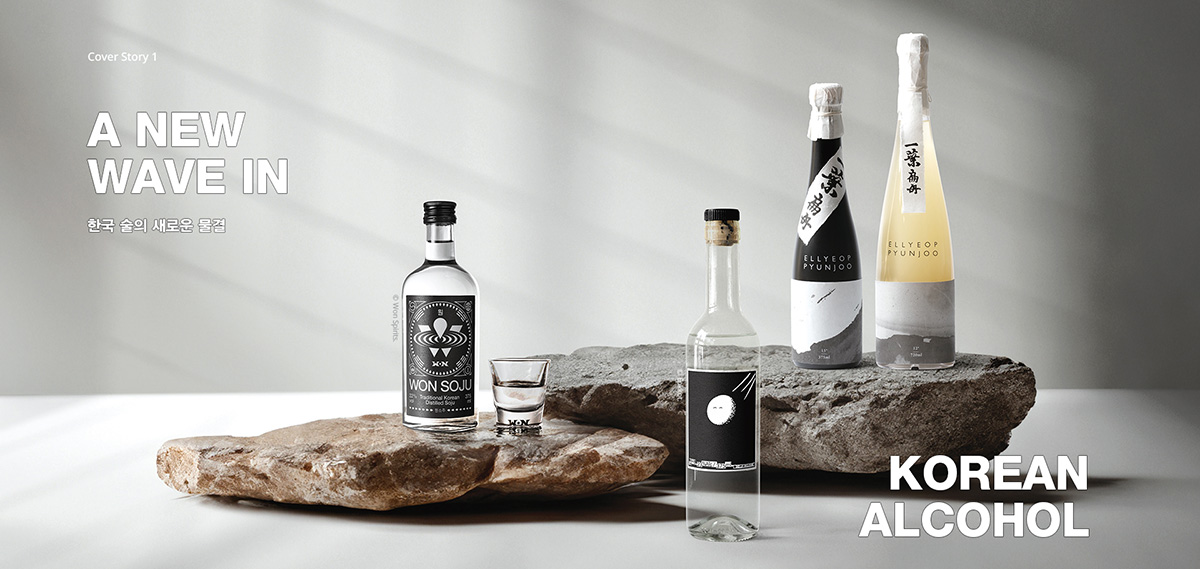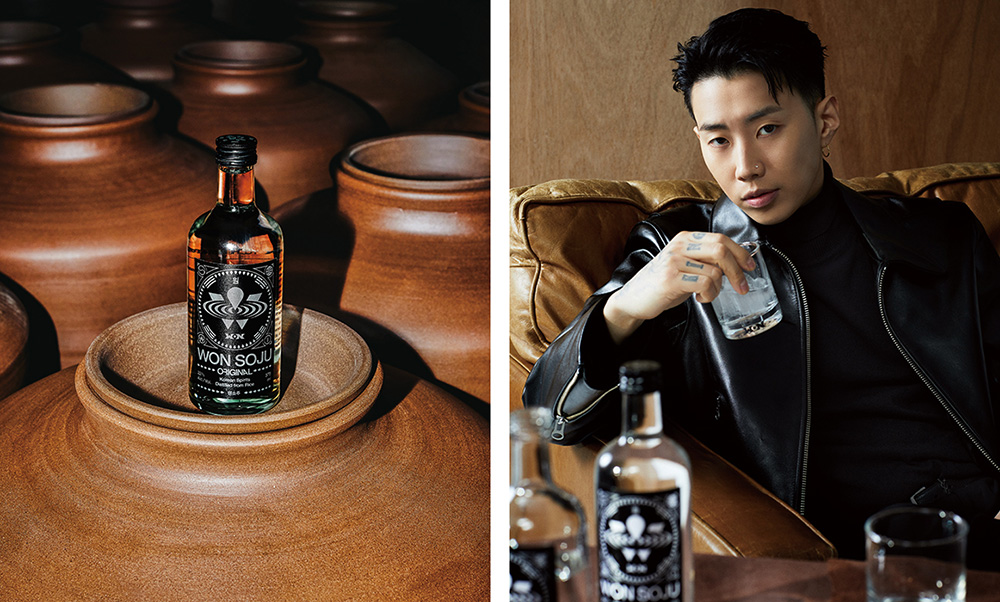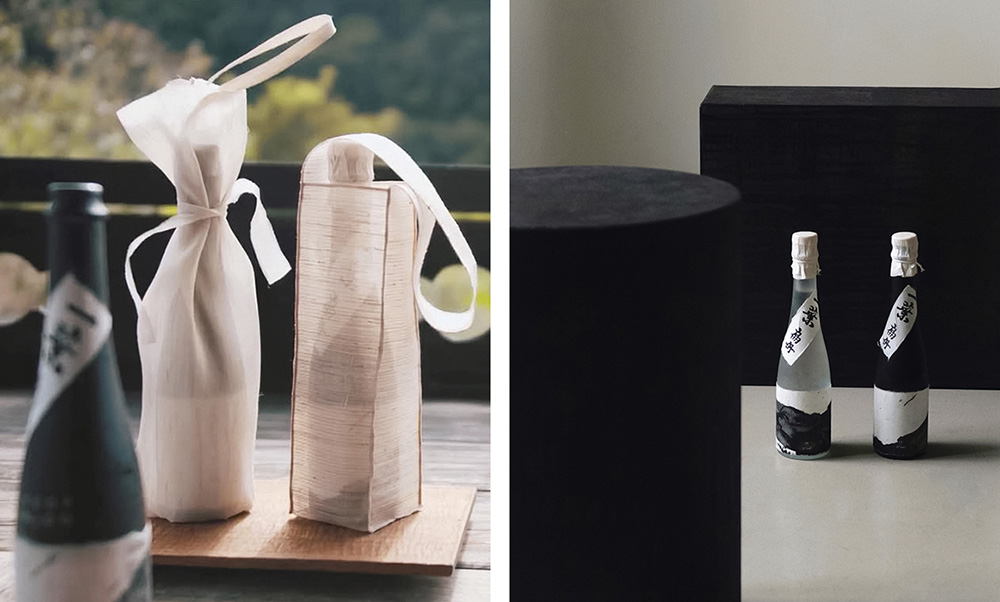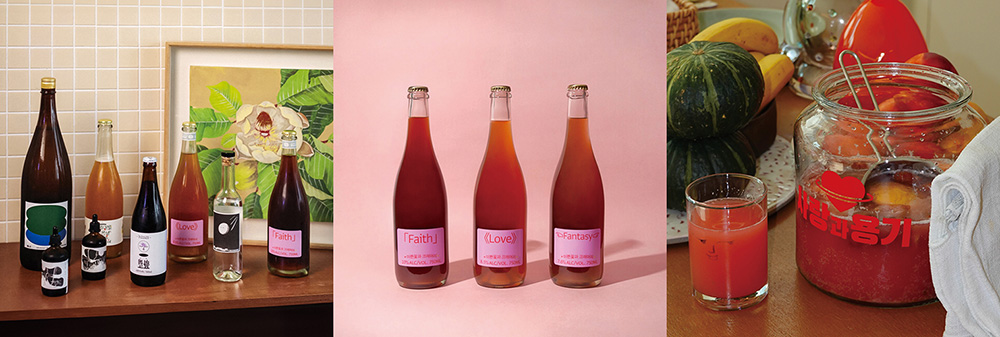
Cover Story
Recently, Koreans have been paying more attention to the diverse histories and regional stories embodied in Korean alcohol, infusing it with contemporary sensibilities to create new meaning. Behind this movement are the efforts of those who reinterpret Korean alcohol through sophisticated storytelling, groundbreaking design and innovative marketing.
최근 한국 사람들은 한국 술이 품은 다양한 역사나 지역의 이야기에 주목하며, 술에 현대적 감각을 불어 넣어 새로운 의미를 만들어가고 있다. 이러한 흐름 뒤에는 감각적인 스토리텔링, 획기적인 디자인과 마케팅 방식으로 한국 술을 재해석한 이들의 노력이 자리한다
Writer. Sung Ji Yeon
Tapping into Tradition
Won Spirits
When many Koreans were unfamiliar with the diverse possibilities of local liquor, Jay Park, a K-pop artist and CEO of Won Spirits, transformed the Korean alcohol market by reshaping perceptions of traditional Korean drinks.
Growing up in America, Park initially didn’t drink soju, but after living in Korea, he grew curious about its appeal. Discovering that traditionally made soju, crafted from natural ingredients, possessed a unique charm, he decided to pursue this challenging and time-consuming traditional method.
Park’s soju, branded as Won Soju, became a veritable sensation upon its release. The initial batch of 20,000 bottles was gone within a week, and customers eager to pick up a bottle formed long lines at outlets and pop-up stores. People who had tasted or heard about Won Soju were fascinated by the unexplored diversity and depth of Korean alcohol.
One factor behind that trend is Won Soju’s distinctive flavor. The soju brands generally sold at convenience stores don’t have much flavor or fragrance. Impurities are removed to create pure alcohol, eliminating the original qualities of the ingredients. But Park’s alcohol is built differently. The mash is based on rice only grown in Wonju. The precursor is made by mixing water and nuruk (fermentation starter), stored until sediment sinks and clear alcohol rises. That refined alcohol is distilled and aged in traditional Korean earthenware called onggi, preserving the natural aroma of rice and nuruk.
The packaging also has a subtle charm. Despite the emphasis on tradition, the brand avoids clichéd images and instead presents oddly familiar designs. For example, the label design incorporates elements such as the Taegeuk symbol, the Korean won sign (₩) and the four trigrams (geon, gon, gam and ri) from the Korean flag, effectively highlighting its identity as a Korean spirit and capturing attention.
Park’s soju has placed traditional alcohol on Koreans’ radar screens. Outside of Korea, his products are being exported to around the world. Now, Park says that he wants soju—which is still largely unknown in many parts of the world—to become a liquor that everyone will recognize.
“In other countries, not many people know about soju. I wanted to show them that Korean alcohol can be just as impressive as traditional spirits from elsewhere. Our competitors aren’t other Korean liquors, but global distilled spirits like tequila and whiskey,” Park says.

© Won Spirits.
Hidden Values in Bloom
Epkkot
Epkkot, derived from a Korean phrase meaning “beautiful flower,” is a brewery offering Korean beverages developed in-house or through collaborations, giving a fresh spin to regional drinks from across the country. Founder Yang Yoo-mi named the brewery Epkkot to evoke the image of a bouquet, with each beverage blossoming beautifully in its own unique way.
She releases distinctively Korean drinks representing various kinds of alcohol, both based on original recipes and created in partnership with regional breweries. For example, she has made alcohol with a family brewery in Seocheon-gun County now managed by the third generation and a rice beer called makgeolli in the Seoul area.
Yang also posts comics on social media that describe the development of her products, the best ways to enjoy them and the ideas behind them. Beverages created like this become “booze with a message,” blending tradition with contemporary lifestyle and regional identity with the brewers’ own stories.
The charm of Epkkot’s alcohol has already spread around the country. It supplies products to department stores, wine shops and gourmet restaurants—including some with three Michelin stars.
Epkkot is one of Korea’s trendiest brands for today’s consumers. Yang says she hopes to keep creating “the most contemporary alcohol” that anyone can enjoy, while also capturing a modern sensibility.
“Our drinks are designed to be intuitively enjoyable for novices and to be intellectually appealing for aficionados. So I hope Epkkot will be a drink that helps people find meaning in every moment,” she says.

© Epkkot.
Old Wine in New Windskins
ELLYEOPPYUNJOO
There’s a Korean family that has been making traditional alcohol for six centuries. Brewed by the descendants of Joseon scholar Lee Hyeon-bo, known by his pen name of Nongam, this drink was once reserved for family gatherings and special guests. That changed when Kwon Jan-di, a former gallery curator and the current manager, reintroduced it to the public.
Kwon discovered the alcohol after marrying into the family and was struck by its exquisite flavor. She suggested sharing it more widely, and the family agreed. The result was ELLYEOPPYUNJOO, a name meaning “a tiny boat floating like a leaf,” taken from Nongam’s poetry.
Her vision was to offer people today the refined pleasures once savored by Korean intellectuals. While preserving traditional brewing methods—with only rice, water and homemade nuruk—she modernized the packaging and branding.
ELLYEOPPYUNJOO’s packaging is modern yet reflects Korean aesthetics. The bottle is encircled by a Hanji (traditional paper) band printed with an ink-and-wash painting of the Nongam ancestral house. The Chinese characters “il-yeop-py-eon-joo” (stylized as ELLYEOPPYUNJOO)—taken from the handwriting of the scholar Yi Hwang, a pupil of Nongam—appear on another slip of paper around the bottle’s neck, reproducing the feel of traditional woodblock printing.
Kwon’s initiatives have created synergy with the alcohol’s centuries-old history, proving traditional alcohol’s potential. Kwon isn’t satisfied with the brand’s market impact—they’re already working to unearth additional historical value.
"I had no intention of passing myself off as a master brewer and no ambition of making the number-one traditional alcohol. I just wanted to share the story of being an ordinary home brewer. But I want it to be an encounter with natural elegance that brings people comfort. Eventually, I hope to offer new ways to experience tradition through a contemporary lens,” she says.

© ELLYEOPPYUNJOO.





